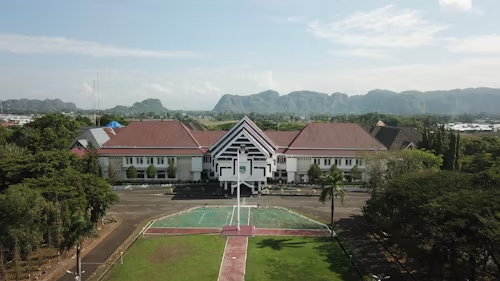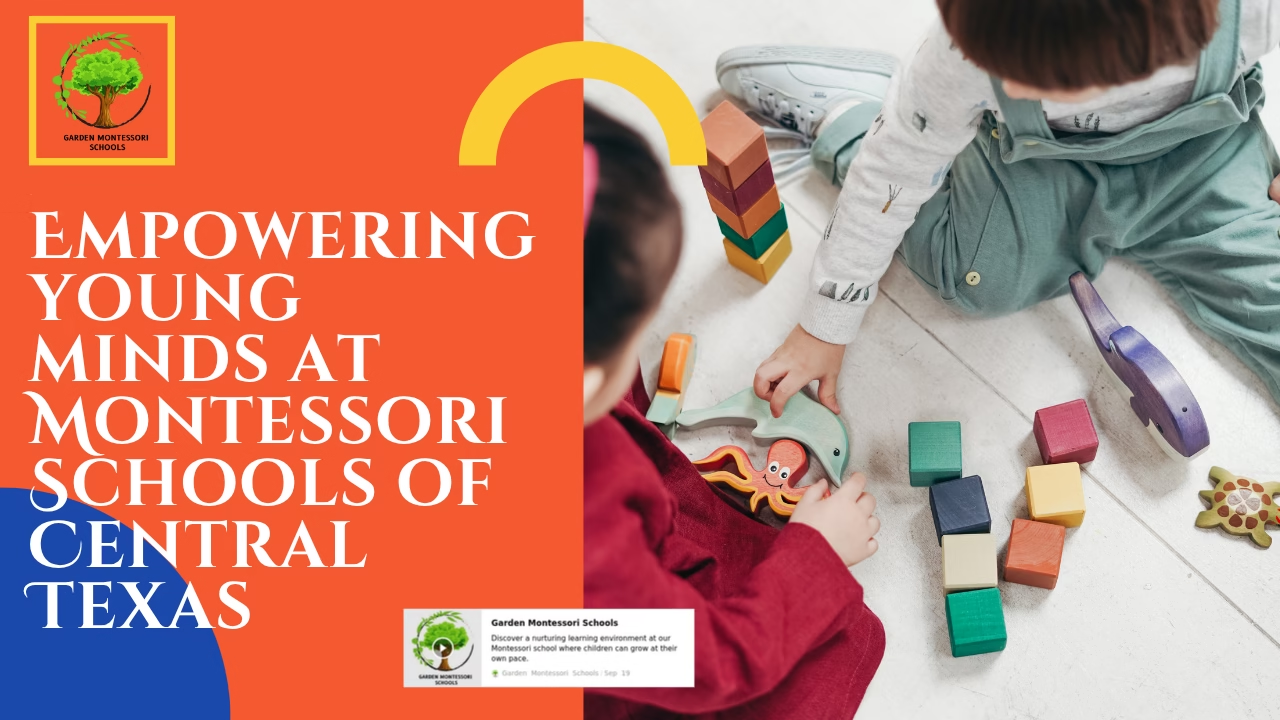In the area of early education, Children’s Garden Montessori has established itself as a leading institution for the development of young children. This distinctive learning style integrates nature-based activities within the Montessori framework, enabling children to learn, play, and develop in their own ways and at their own pace.
Informed by the value of the child’s learning process, the programme at Children’s Garden Montessori places a priority on experiences, real-world interactions and the acquiring of practical skills. With such a diversion from the overly academic orientation to education, children become lifelong learners, self-reliant and respectful of their environment.
Deemed a reliable educational approach, Children’s Garden Montessori offers several advantages to the children, parents and communities in general through promoting lifelong learning and personal development. In this article, we discuss why Children’s Garden Montessori is a perfect beginning for parents who desire a complete early education for their children.
What is the Reason that Montessori Education Places a Focus on Child-Centered Learning?
In Montessori education, the principle of freedom is strikingly visible, where over 200 children within the environment have the ability to explore everything themselves. Young learners at Children’s Garden Montessori are empowered with this kind of child-centered education to instill interest in them.
In a regular Montessori classroom, students are presented with a variety of age-appropriate tasks from which the child can choose and work on at his/her own pace. The role of the teacher is to support the students in moving along with the child that does not interfere with the child’s natural and individual curiosity.
This enhances not only academic skills, but also self-control, critical thought processes and independence as all of them are beneficial characteristics even outside the academic world.
In addition to that, the approach of Children’s Garden Montessori with regard to how each child is treated gives children the relevant teaching and skills to turn out to be self-assured and self-driven. This is one of the many factors that have made parents seek such a foundation for their children at institutions like Garden Montessori Schools.
What are the Practices of the Montessori Method that Support the Development of Social Skills Among Children?
The development of children’s social abilities is an important aspect of their overall growth, and this is reinforced by the Montessori method that encourages children to learn from each other.
The Children’s Garden Montessori set-up has younger groups in the same class with older ones so that older children teach and younger children learn. This encourages children to work together, enhancing feelings of responsibility, compassion, and respect that are abundant among students and provides a good foundation for positive social relations.
On the other hand, Montessori also helps children understand how to respectfully express their needs and opinions to each other rather than just their guides, and create peaceful resolutions by themselves.
Such sociological practices are vital in self-regulating the emotions of a child. Allen Rogers Montessori looks through a lens of social learning and sees how society and their peers shape children for the better and not just inside the walls of the classroom.
Why is Hands-On Learning Important to Children’s Garden Montessori?
It is widely accepted that the Montessori method is quite a hands-on approach and this is the philosophy in the Children’s Garden Montessori. How do children learn? They play with materials that have been specially made for them to explore and learn independently.
From sensorial materials that involve touch and sight to practical life activities that develop hand-eye coordination, it is safe to say that these resources were designed for children in their preschool years.
This kind of education is more fun for children and at the same time reinforces what they have learned in an effective manner. For instance, children grab beads for counting and this makes them develop a sense for what quantities mean.
Through the use of educational techniques that involve movement, Children’s Garden Montessori assists students in creating knowledge that is fun to acquire and effective.
How Is Interdependence Fostered in a Montessori Setting?
Promoting independence is one of the most important aims of everyday activities that involve children in Montessori education.
At Children’s Garden Montessori, the children’s opportunities and responsibilities are age-appropriate, which promotes the ability to care for their belongings while taking care of the environment that surrounds them as well as making different decisions.
The various child-oriented activities and routines in the classroom work towards instilling a feeling of control in the children, thus motivating them to be responsible for their actions.
The child’s experience of autonomy and self-directedness is shaped by their previous experiences more specifically, in order to develop the confidence needed to acquire or further hone such skills, children are first able to problem solve independently and make decisions within their attributes.
Protection and characteristics in that environment help to build the child’s self-confidence and self-esteem, challenges in the environment such as risk-taking when seeking new opportunities are important.
The autonomy provided in Children’s Garden Montessori classrooms also allows the child to develop a positive outlook towards his/her surroundings that will later help benefit the child at school and also within the community.
How Does Outdoor Learning Make a Difference In Children’s Garden Montessori?
Children’s Garden Montessori considers outdoor learning as a necessary component of the school. Activities targeting nature such as gardening, nature walks and sensory exploration make children interact with the surroundings and make sense of the world.
This idea is in line with the Montessori concept which asserts that academic knowledge is best developed through practice. Outdoor play also promotes physical growth as children get to work out and develop their large muscles.
Moreover, being in nature has been associated with improved attention span, lower levels of stress, and better ability to think divergently. As a result of outdoor learning, Children’s Garden Montessori promotes curiosity, appreciation for the environment, and a more comprehensive education model that is not confined to the classroom.
In What Ways Does the Montessori System Promote Curiosity and Critical Thought?
Montessori believed that curiosity is an intrinsic part of education and embraced curiosity – for him, it was about finding meaning, searching for clues, self-education, and experiencing a continuous process of learning.
Children’s Garden Montessori embraces children’s curiosity in a positive manner. Learning materials are designed in a way that encourages exploration and prompts children to ask questions and look for answers.
Montessori allows children to choose activities that are in line with a child’s natural inquisitiveness. Additionally, all Montessori materials assist children in understanding their mistakes, thereby assisting in problem solving and building confidence.
This focus on exploration allows children to develop and learn how to think critically and approach and solve intricate issues with diligence. Children’s Garden Montessori supports a curriculum that believes in fostering education that is lifelong and encourages children always to strive forward.
Why Is Respect for Each Child’s Learning Journey Important from the Perspective of Montessori Philosophy?
Every child is respected in Children’s Garden Montessori in the way how fast he or she learns — this forges the core of the Montessori philosophy, which stresses the uniqueness of each child’s learning moment.
Teachers offer students specialized assistance so that the children’s current stage of ability is what determines the next step. Such a role prevents competition and celebrates self-building.
Children’s Garden Montessori sets up a community where children are appreciated and driven to pursue their goals by understanding that each child develops in their own distinct way.
With their growth perspective in focus, the best people for a Montessori approach are those parents who wish their children to develop in a loving and caring atmosphere.
How Do Practical Life Activities Facilitate the Development of Life Skills Required in the Real World?
Montessori practical life activities are foundational components of a Montessori curriculum and support the acquisition of life skills. At Children’s Garden Montessori, these activities incorporate mundane tasks like pouring, cleaning, dressing, and preparing light snacks.
Such activities help to develop fine motor skills, hand-eye coordination, as well as attention and concentration, all of which are significant in discussing academic and personal achievement in the child.
Moreover, in the process of doing these tasks, children also learn how to care for themselves and what it means to be responsible, which is great preparation for the day-to-day demands of life.
The independence that practical life activities provide also results in a great deal of satisfaction and motivates the child to be a proactive participant in both their education and development.
Why Emphasize Multi-Sensory Learning in Montessori Education?
In the Montessori Children’s Garden, multi-sensory learning is essential for children’s development since it allows them to touch, see, and even hear as they learn.
Most of the tasks are multi-sensory, incorporating sight, touch, sound, and movement which aids memory and comprehension.
It is also especially important with younger children who require a variety of experiences for enhanced brain development.
Multi-sensory learning also makes lessons easier and fun so students can remember them easily and studies show that it helps in developing stronger networks in the brain.
At Children’s Garden Montessori, such learning encourages children to blossom as they are in a multi-sensory rich learning environment.
How do the Children’s Garden Montessori Schools help develop a global perspective and appreciation for culture?
Children’s Garden Montessori and other similar classrooms promote understanding of other cultures and tolerance of other ethnicities.
Their curriculum usually includes aspects of different cultures, traditions, and languages that help make kids appreciate diversity at an early age. As such, children are nurtured to respect and value people from other cultures and foster the ideals of tolerance and acceptance.
Multicultural education approaches used at the Children’s Garden Montessori prepare children for tomorrow, and teach them to see the impact each one of us has on society.
It is also in a Montessori environment that such qualities are nurtured as children deal with different cultures and learn to respect their differences, which is good for their social and emotional development.
Conclusion
In conclusion, Children’s Garden Montessori allows children to learn at their own pace through authentic activity whilst fostering independence, curiosity, and social growth.
Every aspect of the Montessori Method, including but not limited to, the use of outdoor classrooms and multi-sensory teaching methods, aims to cultivate the development of confident, respectful, and well-behaved children.
Families who choose Children’s Garden Montessori also appreciate the concept that early childhood education should be integrated and take all areas of development into consideration.
This integrated approach to education at Garden Montessori Schools encourages respect for others, interest in learning, and the acquisition of practical life skills, giving a clear guarantee of a successful future for the children.
FAQs For Children’s Garden Montessori
What’s so good about Montessori education?
Montessori education enhances independence, social skills, and develops the spirit of inquiry. Children’s Garden Montessori helps children learn in the relaxed atmosphere of their choosing.
Why do you think Children’s Garden Montessori is a good fit for your child?
Children’s Garden Montessori adds outdoor activities to their Montessori strategies, creating a more holistic, child-focused learning process that encourages development and appreciation for uniqueness.
In what ways does Children’s Garden Montessori facilitate social interactions between children?
The way Children’s Garden Montessori structures the activities promotes cooperative learning and a sense of community in children, helping them to nurture empathy, respect and communication in children.
Does Children’s Garden Montessori approach learning with creativity?
Yes, Children’s Garden Montessori aims to stimulate children’s active participation by hands-on materials that promote tactile experiences and aid in learning key messages.
How would you justify outdoor learning in a Montessori classroom?
Outdoor learning at Children’s Garden Montessori helps to extend the child’s relationships with nature and support their physical growth and development alongside a sense of inquiry about the world.



